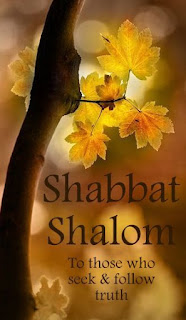Shalom!
!שָׁלוֹם עֲלֵיכֶם [shalom aleikhem] or [shalom aleikhem] - Literally: "Peace upon you!" - this one is the most traditional one, and probably is familiar to everybody, as well as the next one:
!שלום - [shalom] - Most common greeting; but it is in fact simplification of the former. You can also say "shalom, shalom!" Well, I guess, everybody knows what does this mean.
What's up?
?מַה נִשְׁמַע [ma nishma] - "what's up" - is probably second by popularity among the greetings, if not the first.
There is a shortened version of it, it's quite new, and it's rather slang of Tel-Aviv rather than common phrase everywhere:
?מה ניש [ma nish?] I personally think it doesn't sound the best from aestetical point of view... :) But maybe I'm just too old-fashioned...
?מה ניש [ma nish?] I personally think it doesn't sound the best from aestetical point of view... :) But maybe I'm just too old-fashioned...
How are you?
?מַה שְׁלוֹמְךָ [ma shlomkha] (m) - "How are you doing?" (when talking to male.)
When talking to female: מַה שְׁלוֹמֵךְ? [ ma shlomekh] (f)
Also, sometimes you can hear variations:
?מַה שְׁלוֹם כְּבוֹדוֹ - [ma shlom kvodo] - "How Your Honor is doing?" - either very respectful or a little ironic.
?מַה שְׁלוֹם הַגְּבֶרֶת - [ma shlom ha-geveret] - "How are you doing, Ma'am?"
?מַה שְׁלוֹם גְּבִרְתִּי - [ma shlom gvirti] - "How are you doing, (my) Lady?"
?מַה שְׁלוֹם הָאָדוֹן? - [ma shlom ha-adon] - "How are you doing, Sir?"
?מַה שְׁלוֹם אֲדוֹנִי - [ma shlom adoni] - "How are you doing, (my) Sir?"
Good morning!
בּוֹקֶר טוֹב - [ boker tov ] - Good morning! - and we answer:
!בּוֹקֵר אוֹר - [ boker or ] - "Morning (full) of light!"
עֶרֶב טוֹב - [ `erev tov ] - Good evening!
Variations (again, all those are greetings, not farewell):
!בּוֹקֶר מְצוּיָּן - [ boker metzuyan ] - (Have an) excellent morning!
!עֶרֶב נָעִים - [ `erev na`im ] - (Have a) nice evening!
Remark: נָעִים is not plural; the plural of נָעִים would be נְעִימִים
!עֶרֶב מְצוּיָּן - [ `erev metzuyan ] - Excellent evening!
צָהֳרַיִם טוֹבִים - [ tzohorayim tovim ] - Good afternoon (literally: Good noon, since צָהֳרַיִם means "middle of the day") Since צָהֳרַיִם is plural (rather dual), the adjective טוב gets its plural form טובים.
If you're trying to be polite, don't forget to add something line "Sir", or "my Lady", as mentioned above.
Well, although it's not exactly greeting, but for "Sweet dreams" we say in Hebrew:
לַיְלָה טוֹב - [erev tov] - Good night! (same as Sweet dreams!)
You also can say שֵׁינָה טוֹבָה - [ sheina tova ] - literally: (Have a) good sleep!
What about saying "have a good night" as farewell? Let's keep this as possible topic for the next article.
Welcome!
!בָּרוּך הַבָּא - [ barukh ha-ba ] - it means Welcome!, and literally translates as "Blessed is the comer". Somebody is coming in, and those meeting him (in their house, for example) are blessing him, that's what it is.
!בְּרוּכִים הַבָּאִים - [ brukhim ha-ba'im ] - Same thing as the former, but the greeting is being told to more than one person.
!בְּרוּכִים הַנִּמְצָאִים -[ brukhim ha-nimtza'im ] - Although rarely used nowadays, this would be a really nice reply to those who are telling you Welcome. Literally it means "Blessed (are those, who are) residing (here)!"
!בָּרוּך הַשָּׁב - [ barukh ha-shav ] - Another idiom of the same pattern; this is how you welcome somebody who had gone and then returned: "Blessed (is) the (one who is) returning!"
What's new?
All the variations of "anything new?", when you expect some news:
?מַה חָדָשׁ - [ma chadash?] - "What's new?"
?נוּ,יֵש חֲדָשוֹת - [ nu, yesh chadashot? ] - "Any news?" The "Nu" is optional, of course. :)
credit ulpan.net
 Other Expressions
Other Expressions
Shalom (shah-LOHM)
Hebrew. Literally, peace. Used as either “Hello" or "Goodbye."
Mazel Tov (MAH-zl tov)
Yiddish/Hebrew. Literally, Good luck! This is a traditional way of expressing congratulations. "Mazel tov!" is the appropriate response upon hearing of an engagement, marriage, birth, bar/bat mitzvah, graduation, new job or other good news. This term is not used to mean "good luck" as we use it in English in regard to future events. Quite simply, it expresses pleasure at someone else’s good news.
Yasher koach (YAH-shehr KOH-ahkh)
Hebrew. A way of congratulating someone for performing a good deed or participating in some aspect of the synagogue service. This expression wishes its recipient the strength to continue doing this good deed or service to the community.
L'Chayim (li-KHY-eem)
Yiddish/Hebrew. Literally, To Life. The toast offered before drinking wine or other beverages, used like "Cheers!" in English.
credit ifcj.org
view Jewish greetings From Wikipedia



No comments:
Post a Comment